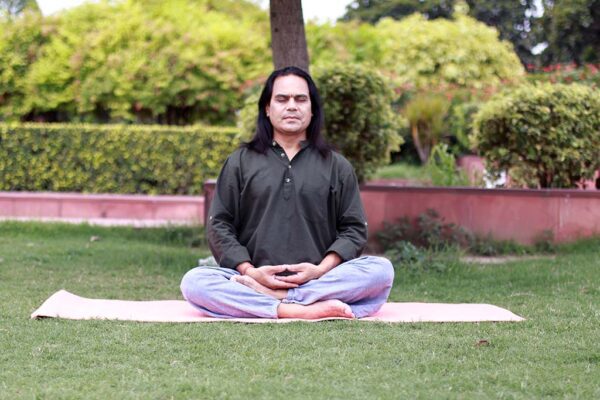- Health and Wellness, Psychology

The importance of maintaining good mental health cannot be overstated, especially when you suffer from a chronic illness like psoriasis. Psoriasis can cause severe physical effects and can interfere with your daily activities. In this article, we’ll explore the signs and symptoms of poor mental health, as well as the impacts of stress and depression on physical health. Listed below are some of the most common symptoms.
Symptoms of poor mental health
Managing your mood and energy levels are key to addressing depression. Eating foods rich in fiber and phytonutrients will help improve gut signaling and energy levels. In addition, limiting alcohol and caffeine can help improve mood and energy levels. It is also important to get plenty of sleep. Getting a routine physical checkup with a primary care provider can help diagnose underlying health issues and offer support.
Many people suffer from physical symptoms that are not medically related to their mental health. For example, feelings of fatigue may signal depression or anxiety, even though they may have no medical cause. People suffering from depression or anxiety often feel drained and drowsy, which makes it difficult to think clearly, concentrate, or follow conversations. If you notice yourself feeling low energy on a regular basis, it’s time to visit your physician.
Although mental illnesses do not necessarily result in physical illnesses, they can have a profound effect on your overall health. These illnesses can reduce your life expectancy. According to a study by Oxford University, people suffering from mental illnesses reduce their lifespan by 20 years. The connection between physical health and mental health is stronger than many people realize. Physical activity releases feel-good chemicals in the brain, which boosts the immune system and improves mood and mental alertness. Therefore, even ten minutes of walking daily can have a profound impact on your mental and physical health.
Various physical signs of mental illness can include muscle tension, headaches, and other aches and pains. Some of the symptoms can be accompanied by other physical signs such as stomach pain, back pain, and headaches. Other physical symptoms can include unidentified pain in the stomach or back, as well as diarrhea and other unexplained aches and pains. As mental illnesses can affect both the mind and body, they are often difficult to treat or manage without the help of medical professionals.
Effects of depression on physical health
Chronic anxiety and depression are less common, but both can have devastating effects on physical health. Chronic depression affects around 6 percent of adults and impairs work, social, and family life. It also exacerbates pain perception and increases the risk of chronic disease and pain. Depression can make people susceptible to physical ailment, making it difficult to continue therapy. Fortunately, treatment for both anxiety and depression can help people recover and feel better.
The main physical effects of depression include changes in the immune system and the heart. People with depression produce more inflammatory hormones, which increase the risk of getting sick. These hormones interfere with metabolism and blood pressure. Many people also neglect to monitor their diets and exercise regularly, making depression a particularly bad combination. But if you’re looking for ways to prevent physical health problems from developing, it’s important to remember that treating depression is possible.
Depressive symptoms can include unexplained aches and pains, low energy, and unmotivated behavior. Although depression is a common mental illness, it affects 6.7% of US adults. If you suspect that you might be suffering from depression, seek medical care immediately. But in the meantime, it’s important to try to establish healthy habits that will help you overcome your symptoms. A regular exercise program will increase your body’s temperature and make you feel better.
Physical symptoms of depression include erratic sleeping habits, muscle aches, loss of appetite, and back pain. The long-term effects of depression are more difficult to detect and are more common, including decreased energy, obesity, and even suicidal behavior. If left untreated, depression can cause a range of health problems, from a person to a family, friends, and colleagues. In extreme cases, depression may lead to suicide, which can result in death.
Effects of psychiatric conditions on physical health
Psychiatric conditions affect more people than any other type of disease. Approximately one in five adults suffers from one or more mental health conditions each year. These conditions can start at any age, but most often begin earlier in life. They may also have multiple effects, lasting for years or even decades. For instance, attention deficit hyperactivity disorder affects children and teens but can also affect adults. Another common mental health disorder is anxiety. Anxiety disorders cause intense fear and are accompanied by impulsive behaviors.
Researchers also found that people with two or more psychiatric conditions were at greater risk of mortality from these illnesses. Chronic respiratory diseases are known to be linked with an increased risk of depression and anxiety. In the same study, those with chronic respiratory diseases and psychiatric comorbidity had a greater risk of dying prematurely than those without either condition. Suicide rates were also higher for people with chronic psychiatric conditions than those without.
Mental illnesses can affect one’s physical health in many ways. Studies have shown that the body responds to negative emotions differently than a happy, healthy person. Chronic negative emotions wear down the body, while even short bouts of minor stress can impact it. These feelings have been associated with a high risk of heart attacks and other physical problems. Therefore, physical and mental health can greatly associate. For instance, people who engage in physical activities have better mental health.
Many mental health problems affect our physical health. People with schizophrenia triple their risk of developing lung and heart disease. People with depression also double their risk of heart disease. Overall, mental health disorders affect our ability to function, which reduces our quality of life. In addition, mental illnesses cost society money. Therefore, understanding these effects on physical health is essential for the prevention of further damage. If we are to prevent the spread of mental health problems in society, we must first understand how they are linked.
Effects of stress on physical health
The effects of stress on physical health are multifaceted and can lead to a wide range of physical problems. For example, long-term stress can cause alterations in sleep patterns, eating habits, and physical activity. Chronic or long-term stress has been linked to higher risks of heart attacks, strokes, and gastrointestinal problems. Stress may also cause stomach aches, ulcers, and other digestive problems. People with heart conditions are often particularly vulnerable to stress.
Fortunately, there are many ways to combat the effects of chronic stress. Studies show that chronic stress can disrupt nearly every system in the body. Chronic stress can compromise the immune system, disrupt digestion, and affect the reproductive system. It can also speed up the aging process and rewire the brain. It can even lead to mental health issues. Fortunately, many people can manage their stress by taking some time off. However, chronic stress isn’t good for your body.
Chronic stress is the result of sustained exposure to stressful situations. It damages the body’s tissues and causes it to go into a fight-or-flight response. Chronic stress, on the other hand, is a continuous state of fight-or-flight and can cause long-term damage to the body. Stress can be either positive or negative. The effects of chronic stress on physical health depend on the type of stress you experience.
While stress is a normal human reaction, the long-term effects are harmful. Stress increases the heart rate and breathing rate, which may cause serious problems. Ultimately, chronic stress can damage mental health and cause physical problems. Stress is also a good thing for short-term situations – it can help people deal with a difficult situation. Stress also keeps people alert, which can help them cope with a potentially serious situation.
Effects of self-care on mental health
Incorporating some form of self-care into your life can benefit your physical and mental health. It can help you manage your stress and illness, improve your social life, and even reduce your risk for chronic diseases. Although the benefits of self-care may be numerous, the first step is figuring out what you enjoy doing. Some people swear by a warm bubble bath or facial mask. Others enjoy a road trip, the gym, or cleaning their living space. Whatever self-care method works for you, don’t neglect it!
Many types of self-care activities promote relaxation and increase positive emotions. Regularly scheduling time for relaxing activities and hobbies can help you feel more positive. Taking regular breaks for self-care can also have a positive impact on your overall physical health. In the long run, this can result in more positive emotions, better relationships, and increased productivity. By taking care of your physical health, you can make it easier to manage your mental health as well.
There are many benefits to practicing self-care. It will boost your self-esteem, reduce stress, and increase your feelings of belonging. A positive mindset will make you more able to connect with other people, and your relationships will improve. People will respond positively to you when they feel you care about them. And your relationships will be more fulfilling and successful, too. This is because you are not stressed or overwhelmed, and your mental wellbeing will be stronger as a result.
While self-care is essential for everyone, it is not easy. It takes practice and can seem overwhelming at first. But it is important to note that you do not have to spend a fortune on it. A few minutes a day of self-care will have a profound effect on your overall health. By integrating some self-care activities into your daily routine, you’ll start seeing a positive impact on both your mental and physical health.


















